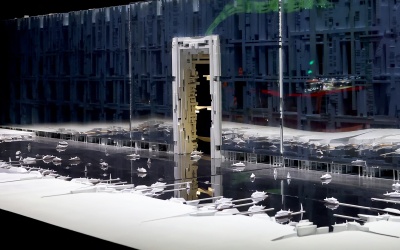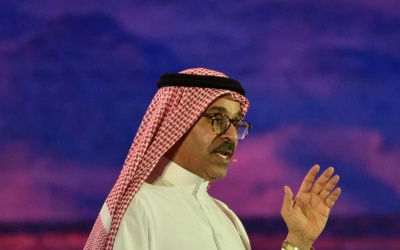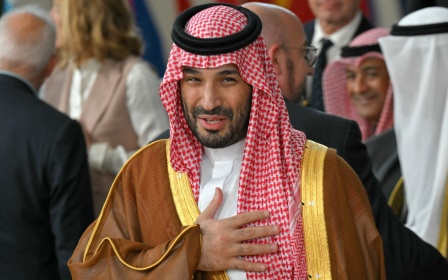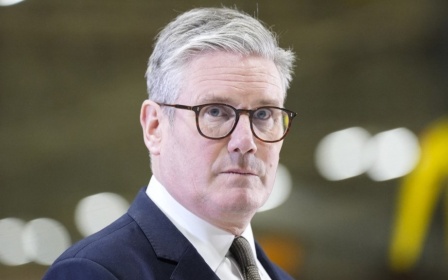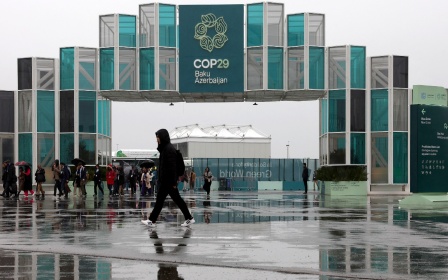Neom: Pakistani worker died while working on Saudi megacity
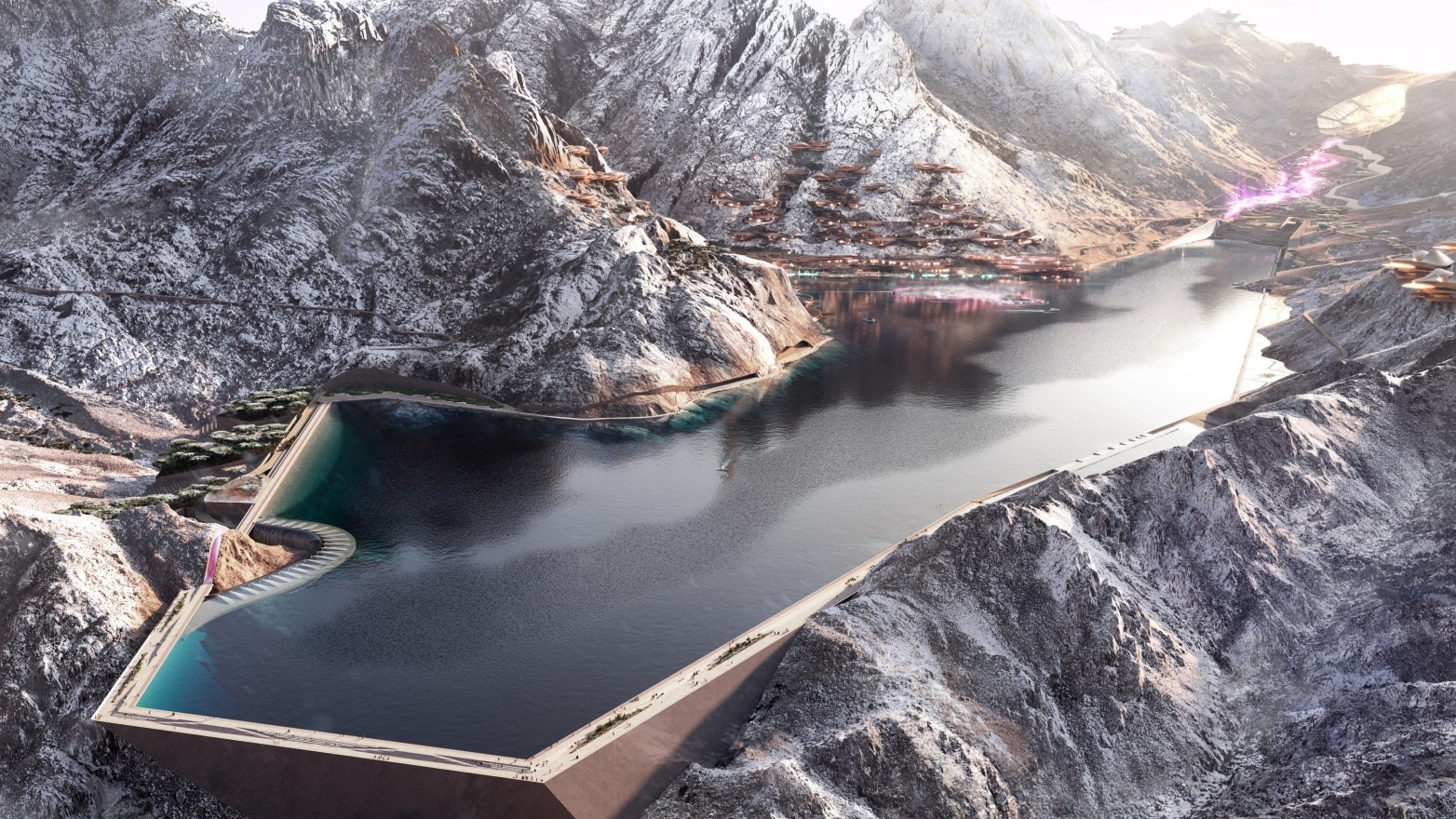
A Pakistani man died while working on the construction of new Saudi megacity Neom, a new report has revealed.
UK-based rights group Alqst reported that Abdul Wali Skandar Khan, a 25-year-old Pakistani civil engineer and father of two, died on 28 December last year after a guardrail collapsed while he was working on a Neom construction site.
Alqst said that neither Khan's employers nor Saudi authorities conducted a proper investigation into his death, or organised for his body to be repatriated.
Khan's brother, who is a dual British-Pakistani citizen, travelled to Saudi Arabia in January at his own expense to retrieve the body.
According to the report, China Comserve, the company which employed Khan, had promised compensation and access to CCTV footage, but failed to deliver on the pledges.
New MEE newsletter: Jerusalem Dispatch
Sign up to get the latest insights and analysis on Israel-Palestine, alongside Turkey Unpacked and other MEE newsletters
Alqst added that the company gave a small amount of the promised compensation to the Pakistani embassy in Saudi Arabia. Khan's family were not consulted on this agreement and are still fighting to access the funds.
The family are now seeking legal avenues to ensure accountability over his death.
Middle East Eye has approached Neom and China Comservice for comment.
Neom scaled back
Organisers claim that Neom, which is being built in the kingdom's northwest, will be 33 times the size of New York City.
It is planned to include a 170km-long city built in a straight line (known as The Line), an eight-sided city that floats on water, and a ski resort with a "folded vertical village", amongst other grandiose schemes.
Saudi Arabia announced in August that Neom Stadium - one of 15 venues to be used during the 2034 World Cup, which the country is hosting - would be built within The Line and would stand 350 metres above the ground.
However it was reported last week that some of the plans for Neom were being drastically scaled back due to rising costs and fast-approaching deadlines.
Instead of 1.5 million people living in the city by 2030, Saudi officials now anticipate fewer than 300,000 residents. Meanwhile, only 2.4km of the city will be completed by 2030.
The controversial chief executive of the project, Nadhmi al-Nasr, who managed Neom’s construction since 2018, departed from his post earlier this month, while two other foreign executives, Wayne Borg, who headed Neom’s media division, and Antoni Vives, a senior executive, have also left Neom.
'Many accidents'
The project has been plagued with controversy, with the Saudi government accused of forcibly displacing members of the Howeitat tribe, who have lived for centuries in the region of Tabuk, to make way for Neom.
At least 47 members of the tribe have been arrested or detained for resisting eviction, including five who have been sentenced to death, according to a previous report by Alqst.
In April 2020, tribal activist Abdul Rahim al-Howeiti was shot dead shortly after making videos protesting against his eviction to make way for the megacity.
In May, MEE reported that Saudi security officers were ordered to use lethal force to kill people who resisted eviction from areas earmarked for the city, according to a former Saudi intelligence officer.
There have also been concerns about the conditions for workers, many of whom are foreign labourers, on the project.
Labourers on Neom are forced to work long hours far beyond legal limits, according to an ITV documentary broadcast last month.
According to “Kingdom Uncovered: Inside Saudi Arabia”, workers should only work 60 hours maximum, including overtime, each week under Saudi law.
But on top of the long shifts, workers told an undercover reporter that they must take an unpaid, three-hour bus commute to get to the desert site and back which leaves them with around four hours to sleep.
“We don’t get enough rest,” one worker said. “This lack of sleep has caused many accidents. There have been many. Just last month, there were four or five cases.”
Neom told the filmmakers that it was assessing the claims made in the documentary and would take appropriate action where it was required.
Middle East Eye delivers independent and unrivalled coverage and analysis of the Middle East, North Africa and beyond. To learn more about republishing this content and the associated fees, please fill out this form. More about MEE can be found here.


